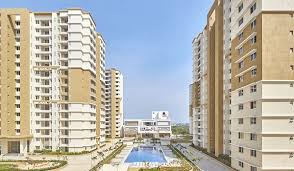The power supply system is one of the most crucial components of any computer. It ensures the distribution of power to various hardware components, ensuring that each part functions efficiently. Without a functioning power supply, a computer wouldn’t even turn on. This post will dive deep into the world of power supplies, with an in-depth focus on computer power supplies, their role, types, and much more.
Introduction: Why Power Supply is Crucial for Computers
A power supply is the heart of any computer system. It converts electrical energy from a source, typically an AC outlet, into the correct DC (Direct Current) voltage that various computer components require. Without the proper power supplies, components like the motherboard, CPU, RAM, hard drive, and other peripherals won’t work.
As computing technology advances, so do computer power supplies, improving efficiency, performance, and safety. Understanding how these systems work can help you choose the right power supply for your needs, ensuring longevity and stability in your machine.
What is a Power Supply?
Definition of a Power Supply
A power supply is an essential component that converts electrical energy from the wall outlet into usable power for a computer’s components. It provides the necessary voltage for different parts of the computer. These components include hard drives, video cards, processors, and more. The power supply ensures these parts receive the proper current and voltage to function correctly.
Most modern power supplies convert AC (Alternating Current) from the wall socket into DC (Direct Current), which is used by most computer components.
Understanding Power Supplies: Types and Functions
Different Types of Power Supplies
Power supplies vary depending on the application, especially when it comes to computers. Here’s a look at the most common types of power supplies used in modern computer systems:
- ATX Power Supply
The ATX power supply is one of the most commonly used types in desktop computers. It offers multiple voltage rails, which allow for stable and reliable power delivery to different components. Modern ATX power supplies also feature connectors for newer technologies, such as PCIe cards and the latest processors. - SFX Power Supply
SFX power supplies are more compact than the standard ATX power supplies. These are ideal for smaller PC cases that require efficient power delivery without compromising on performance. - Modular Power Supplies
Modular power supplies give users the flexibility to attach only the cables they need, resulting in less cable clutter and better airflow inside the computer case. - Non-Modular Power Supplies
These are the more traditional types of power supplies where all cables are permanently attached. While less flexible, they tend to be more affordable and simpler to set up.
What is a Computer Power Supply?
Role of a Computer Power Supply
A computer power supply provides the necessary power for all components of the system, from the CPU to the storage drives, to the cooling system. The computer power supply is typically located at the top or bottom of a PC case, depending on the model, and is directly connected to the motherboard via a 24-pin connector.
A computer power supply is responsible for distributing different voltages to different components. For example:
- 12V for the CPU, graphics cards, and other high-performance components.
- 5V for the motherboard and storage devices.
- 3.3V for some newer systems that need extra power for certain modern components.
How Power Supplies Work in Computers
Converting AC to DC Power
The power supply begins by converting the AC (Alternating Current) from your wall outlet into DC (Direct Current). This conversion is critical, as most computer components rely on DC power to function. The process begins when the power supply draws in AC from the wall outlet, which is then passed through transformers that adjust the voltage and rectifiers that convert the current from AC to DC.
Voltage Regulation and Stability
One of the main roles of the computer power supply is to maintain stable voltage levels. Without proper regulation, variations in power input could cause instability or even damage sensitive components. This is why power supplies come with internal voltage regulation to ensure a constant output of the correct voltage to the motherboard, CPU, RAM, and other hardware.
Factors to Consider When Choosing a Power Supply
Power Output and Wattage
The wattage of the power supply is one of the most important factors when selecting the right unit for your computer. The wattage determines how much power a computer power supply can provide. Choosing a power supply with inadequate wattage may result in power shortages or even system crashes under heavy load.
It’s always a good idea to select a power supply that offers more wattage than your system needs to ensure reliable performance and leave room for future upgrades.
Efficiency Ratings
A key consideration when choosing a power supply is its efficiency rating. Efficiency indicates how well the power supply converts input power into usable output power. An efficient power supply reduces energy waste and minimizes heat generation, leading to longer component life and quieter performance.
Efficiency ratings are usually represented by 80 PLUS certifications, such as:
- 80 PLUS Bronze
- 80 PLUS Silver
- 80 PLUS Gold
- 80 PLUS Platinum
- 80 PLUS Titanium
These ratings indicate the efficiency of the power supply, with 80 PLUS Titanium being the most efficient.
Form Factor Compatibility
The form factor of the computer power supply must match the size and layout of your case. Standard power supply sizes include ATX, SFX, and TFX. It’s important to ensure compatibility with your case before making a purchase.
Benefits of Choosing a Good Computer Power Supply
Improved System Stability
A high-quality computer power supply ensures stable voltage levels, which is essential for system reliability. Unstable power can cause random reboots, freezes, or even hardware failures. By selecting a reputable power supply, you protect your computer components and ensure they work optimally.
Enhanced Performance
While a computer power supply may not directly affect processing power, it provides stable and sufficient energy to ensure all components function at their peak. High-performance components, such as graphics cards and CPUs, require consistent power to perform demanding tasks like gaming or 3D rendering.
Longevity and Durability
A computer power supply that’s well-built and energy-efficient will ensure your computer lasts longer. It can reduce heat generation, which in turn reduces the risk of damage to sensitive components.
Troubleshooting Power Supply Problems
Identifying Power Supply Failures
Some common signs of a failing computer power supply include:
- The computer doesn’t start when you press the power button.
- The system shuts down unexpectedly.
- There’s a burning smell or visible damage on the power supply unit.
If you encounter these issues, it’s advisable to test the power supply with a multimeter or replace it to prevent damage to other components.
Conclusion
A power supply is an essential component in any computer, providing the necessary energy to run the entire system efficiently. Whether you’re building a gaming PC, a workstation, or just need a reliable home computer, choosing the right computer power supply can make a significant difference in performance, stability, and longevity.
With advances in technology, power supplies have evolved, offering higher efficiency, quieter operation, and more features than ever before. Whether you need a basic power supply for everyday computing or a high-performance unit for heavy-duty applications, understanding how these devices work will help you make an informed decision.
FAQs
1. What is the difference between a power supply and a computer power supply?
While the terms are often used interchangeably, a power supply can refer to any power converter, whereas a computer power supply specifically refers to the unit inside a computer that converts and supplies power to various components.
2. How do I know what wattage my power supply needs?
To determine wattage, calculate the total power requirement of all your components (CPU, GPU, motherboard, storage devices). Add some overhead for future upgrades, and choose a power supply with a higher wattage than the total required.
3. Can a computer power supply affect gaming performance?
While the computer power supply does not directly affect performance, it provides the necessary stable power for high-performance components, ensuring they work optimally during demanding tasks like gaming.
4. How long do power supplies typically last?
A good power supply can last between 5 to 10 years, depending on usage and quality. High-quality power supplies tend to last longer due to better construction and efficiency.
5. Is a modular power supply worth the extra cost?
Yes, a modular power supply is worth the investment if you want a cleaner, more organized system. It reduces cable clutter, improves airflow, and makes upgrades or changes to cables easier. However, if you have a limited budget, a non-modular power supply can still serve its purpose effectively.
Also Read
- ► Understanding Power Supply Systems: A Comprehensive Guide
- ► Understanding Tape Drives, Tape Media, and Their Applications
- ► Understanding Storage Array Networks (SAN): The Future of Networked Data Storage
- ► Exploring Storage Array Networks (SAN) and Network Storage Solutions
- ► Exploring Tape Drives: The Reliable Storage Solution
- ► Understanding RAID Controllers: Types and Benefits for Your System
- ► Understanding RAID Controllers: The Key to Advanced Storage Solutions
- ► Comprehensive Guide to Internal Hard Drives: Understanding and Choosing the Right Storage Solution
- ► Why Alsi Is Known as the ‘Golden Seed’ for Health
- ► Choosing the Right Internal Hard Drive for Your Computer
- ► Understanding Solid State Drives: Benefits, Types, and Everything You Need to Know
- ► Understanding Solid State Drives: The Future of Storage
- ► Transform Your Home with Stunning Flooring Ideas
- ► PVDF Filter – The Key to Long Lasting Filtration Solutions
- ► Exploring Volvo’s Presence in Englewood, New Jersey





